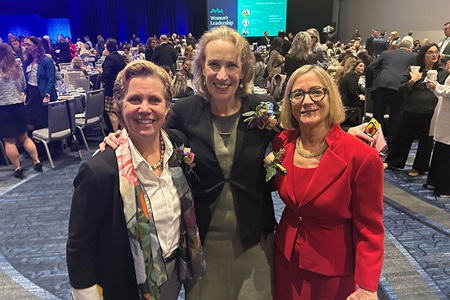Mixed Emotions: Joslin Diabetes Center Experts Explored How Social Media Content Affects Self-Care and Mood in High-Risk Age Group
Study Explores Instagram’s Role in Supporting Young Adults Living With Type 1 Diabetes
For many 18- to 25-year-olds with type 1 diabetes (T1D), managing their condition during a time of life already marked by change and stress poses a significant challenge. For these same young adults, social media is a daily habit, and a potential source of support. A new qualitative study published in JMIR Diabetes explores how Instagram posts focused on diabetes may affect young people’s self-care behaviors and emotional well-being. Unlike a randomized trial, this qualitative study explored participants’ self-reported experiences and perspectives, with insights shaped by a relatively small group of volunteer participants.
“Our results demonstrate that social media has the potential to provide support to young people with T1D as well as impact their well-being by fostering a sense of community and increasing access to new information about diabetes,” said lead author Tara Maxwell, MD, MSHP, a pediatric endocrinologist and research associate formerly at Joslin Diabetes Center. “We also describe the potential negative effects of social media on diabetes, self-management, and emotional state.”
In one-on-one video interviews, participants reacted to a curated set of 10 Instagram posts reflecting common diabetes themes such as technology use, personal reflection, humor, and peer support. Posts were viewed more positively when they were medically accurate, emotionally relatable, and visually appealing. But content that dramatized the condition or idealized life with T1D sometimes undermined self-care or worsened emotional well-being. Some participants reported feeling left out or discouraged by posts that portrayed a strong T1D community they didn’t personally have. Others said they deliberately avoided diabetes-related content, preferring not to be reminded of their condition during their time online.
To better understand how social media influences people with T1D, Maxwell and colleagues, including senior author Lori Laffel, MD, MPH, chief of Joslin’s Pediatric, Adolescent and Young Adult Section and section head of Clinical, Behavioral and Outcomes Research, recruited 26 young adults — mostly female, predominantly white — who received regular care at Joslin and had lived with T1D for at least a year. All participants used continuous glucose monitors, and more than 80 percent also used insulin pumps. While all reported daily social media use, most said they only occasionally viewed diabetes-related content and rarely posted about their condition themselves. Participants’ diabetes management data were also extracted from the electronic health record.
The researchers asked participants to describe how each post made them feel, what it emphasized, and how it might influence their self-care. Core themes emerged from analysis of the interviews, the researchers reported. Social media served to highlight the existence of a community of people with T1D; provide new diabetes information; potentially reinforce good habits; and influence emotional state, for better or for worse. One of the first studies to examine real-time reactions to diabetes-related content, the authors acknowledge that their participants, who generally come into the clinic regularly and opted in to such research, may represent a more self-aware or engaged group of people than the average young adult living with T1D. Still, their findings offer a nuanced look at how young adults interact with diabetes-related content online and how health communicators may best engage this vulnerable demographic.
“Social media may not necessarily be good or bad for young people with T1D,” said Laffel. “It has the potential to foster community, spark reflection, support self-care, and positively affect emotional well-being. With thoughtful design and meaningful engagement, social media could be a powerful tool for improving outcomes in this population.”
Coauthors included Lillian Branka, Noa Asher, and Persis Commissariat, PhD, of Joslin Diabetes Center. Funding for this study was provided by the Thomas J. Beatson, Jr. Foundation Grant, 2023-019 (TM); NIH/NIDDK 5K12DK094721-09 (LB/TM); NIDDK K23DK137024 (PC). The investigators are grateful to the patient participants, whose involvement made this research possible. The authors declare no conflicts of interest.
About Joslin Diabetes Center
Joslin Diabetes Center is world-renowned for its deep expertise in diabetes treatment and research. Part of Beth Israel Lahey Health, Joslin is dedicated to finding a cure for diabetes and ensuring that people with diabetes live long, healthy lives. We develop and disseminate innovative patient therapies and scientific discoveries throughout the world. Joslin is affiliated with Harvard Medical School and one of only 18 NIH-designated Diabetes Research Centers in the United States.



